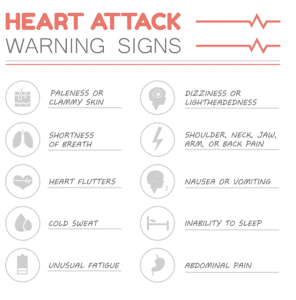
Women who smoke, have diabetes or high blood pressure increase the risk of a heart attack more than men faced with the same risk, studies have found.
Researchers said women should receive the same treatment as men and should be offered support to stop smoking. It is also said that Doctors should be better at stopping female patients at risk.
Over seven years, 5,081 people has their first heart attack and one in three of the people were women. Although the risk of having a heart attack is lower in women than men of all ages, there are certain risks factors that have a greater impact on women.
Women who smoked were three times more likely to have a heart attack than women who did not smoke. For men that smoked their risk was doubled. High blood pressure increases a women’s risk by an extra 83%.
Type 1 and 2 diabetes both had a greater impact on the heart attack risk of a women compared to men. The researchers say they do not know why these factors are

sex-specific. Biological factors may be a reason; for example, type 2 diabetes, usually linked to diet and lifestyle factors, this may have a different impact on a female heart to a male one.
Here are the heart attack symptoms to look out for:
- Chest pain – a sensation of tightness or squeezing in the centre of the chest.
- Sweating
- Shortness of breath
- Feeling of being sick
- Overwhelming sense of anxiety
- Pain in other parts of the body – you might feel pain travelling from your chest to your arms, jaw, neck, back and abdomen.
In some cases, you will not feel any pain at all.
Dr Elizabeth Millett, lead study author and an epidemiologist at the George Institute for Global Health, University of Oxford, said: “Heart disease also affects women and this needs to be recognised.
“Women need to be aware they’re at risk, but despite lots of campaigns, it’s still under the radar of most women.
“It’s a complicated, long-term thing to work out, probably caused by a combination of factors – both biological and social,” she said.